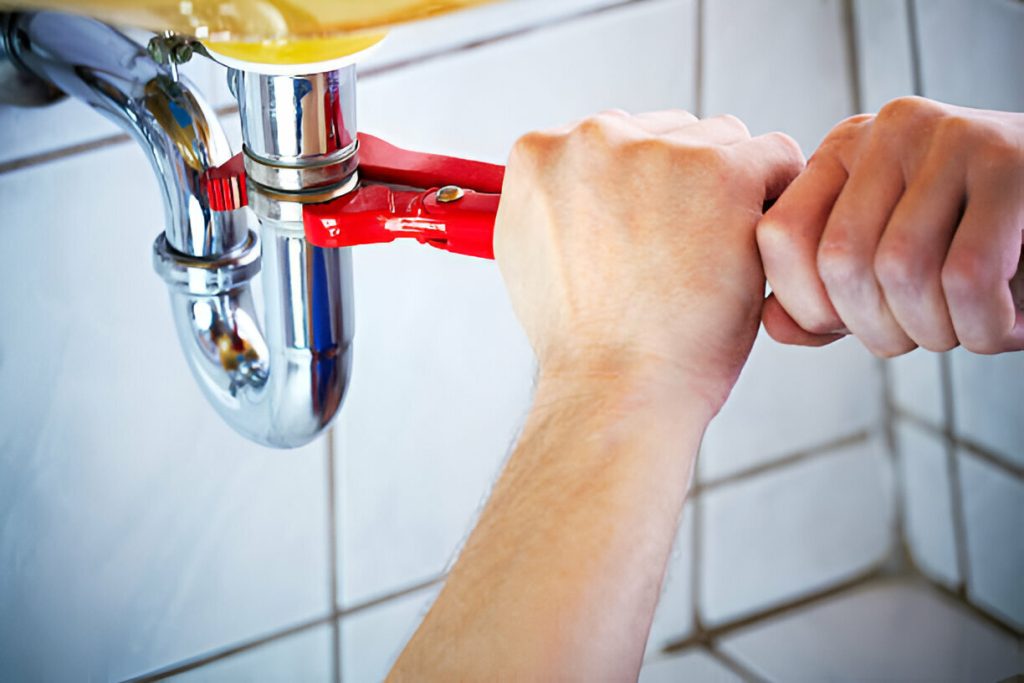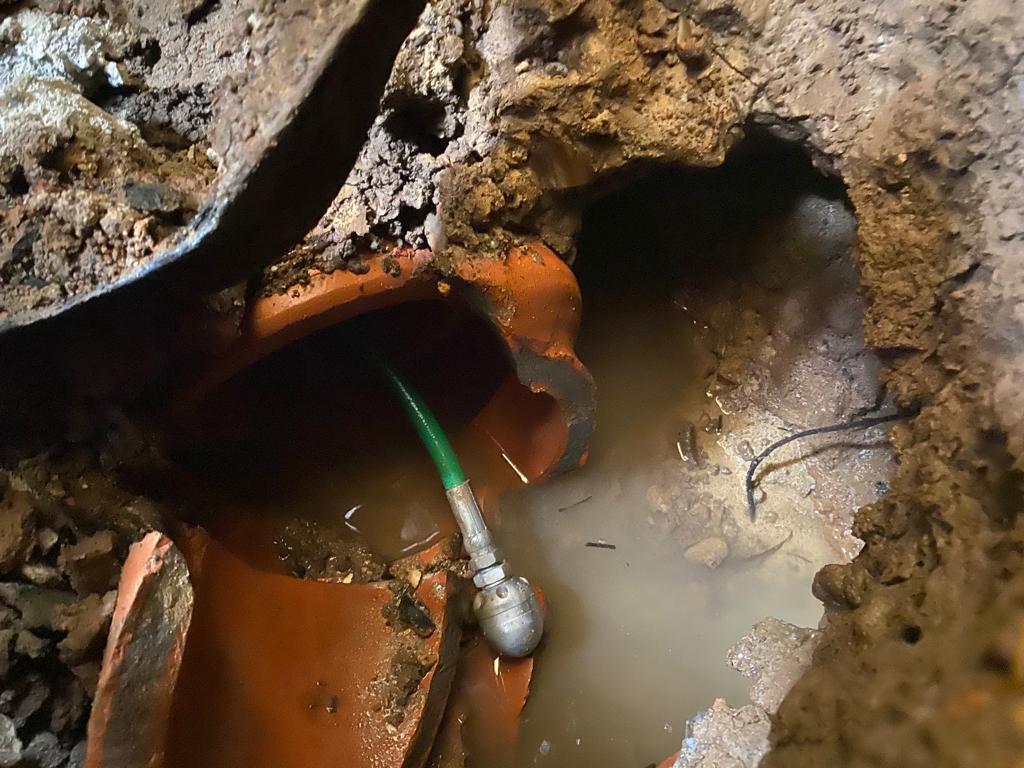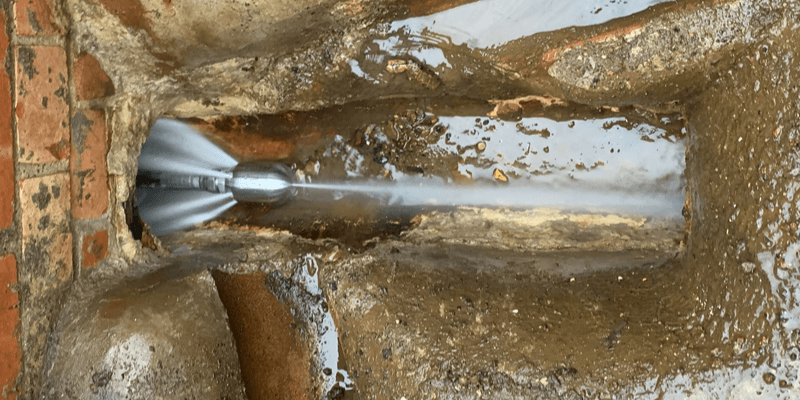Is there anything more frustrating than a slow-draining bathroom sink? The constant pooling of water, the gurgling sounds, and the lingering odors can quickly turn your daily routine into a headache.
So why live with the annoyance of a slow-draining sink when you can take action and have a clean and functional drain? In this comprehensive guide, we will walk you through the step-by-step process of fixing that slow-draining sink once and for all.
Say goodbye to the inconvenience and hello to smooth, efficient drainage. Let’s dive in and get your bathroom sink back to its optimal performance in no time!
Why is My Bathroom Sink Running Slow?

If you’ve noticed that your slow draining bathroom sink pop up, there is likely a clog somewhere in the pipes. This can be caused by a variety of things such as hair, soap scum, and other debris building up over time.
Another possible reason could be a blocked or damaged vent pipe, which helps with proper drainage by allowing air to flow through.
Additionally, mineral deposits or rust buildup on the inside of the pipes can also lead to slow-draining sinks. Regular maintenance and proper usage of the sink can help prevent these issues and keep your bathroom sink drain running smoothly.
How to Fix a Slow-Draining Sink in the Bathroom?
The slow drainage of the sink in the bathroom can be an awkward situation, nobody wants to experience this one, hashave to due to sewerage system issues. But here are some methods to fix a clogged or slow-draining bathroom sink in no time.
Step 1: Remove Any Visible Debris
The first thing you should do when dealing with a slow-draining bathroom sink is remove any visible debris that may be clogging the drain. Hair, soap scum, and other gunk can easily build up and prevent water from flowing freely. Use a pair of gloves and tweezers if necessary to remove any blockages you see.
Step 2: Try Using a Plunger
If the visible debris doesn’t solve the problem, try using a plunger to dislodge any potential clogs further down the drain. Make sure you have enough water in the sink to cover the rubber part of the plunger, and then use quick, forceful movements to create suction and push out any blockages.
Step 3: Clean the Sink Stopper Regularly
To clean the sink stopper, remove it from the drain and soak it in a mixture of hot water and dish soap. Use a small brush or toothbrush to scrub away any grime or debris that may be stuck on the stopper. Rinse thoroughly before placing it back into the drain.
Step 4: Consider Using a Plumbing Snake
For more stubborn clogs, you may need to use a plumbing snake to manually unclog your drain. This tool can be purchased at most hardware stores and consists of a long, flexible wire with a corkscrew-like end. Insert the snake into the drain and turn it clockwise while pushing it further down the pipe. Once you feel resistance, twist and push until the clog breaks up.
Step 5: Call a Professional
If none of these methods work or if you are uncomfortable attempting to unclog your drain on your own, it’s best to call a professional sewer service. They have specialized tools and knowledge to efficiently and effectively remove any blockages in your pipes without causing damage.
What is the Best Home Remedy for a Slow-Draining Sink?

One of the best home remedies for slow draining sink is using a mixture of baking soda and vinegar. Start by pouring half a cup of baking soda down the drain, followed by one cup of white vinegar.
Let this mixture sit for about 15 minutes before flushing it with hot water. The combination of these two ingredients will create a chemical reaction that can break down solids and any build-up in the pipes.
Regularly cleaning of homemade drain cleaners helps your sink’s stopper and overflow holes to prevent future clogs.
Also Read: Stormwater Drainage
Why is My Sink Draining Slowly But Not Clogged?
This is a question many homeowners ask themselves. The answer is often due to gunk and debris building up in the pipes, creating a blockage that restricts water flow. If left untreated, this build-up can lead to more severe clogs and even damage to your plumbing system.
In some cases, the sink drains slowly no blockage could be related to a partially closed or malfunctioning stopper. If the stopper is not opening fully or if it’s misaligned, it can restrict the flow of water even when there is no visible blockage in the drain pipes. Checking the stopper mechanism and ensuring it moves freely could help improve the drainage speed.
Additionally, issues with the sink’s venting system or problems further down the pipe network could also lead to slow drainage without an obvious clog. It’s essential to consider these factors when troubleshooting a slow-draining bathroom sink not clogged to identify and address the root cause effectively.
Tips to Prevent Slow-Draining Issues in the Future
- Regularly clean the sink stopper by soaking it in a mixture of hot water and dish soap, then scrub away grime with a small brush or toothbrush before rinsing thoroughly.
- Clean the overflow holes located near the top of the sink by using a small brush or pipe cleaner to remove any clogs caused by hair, soap scum, or debris. Alternatively, pour baking soda and vinegar down the holes and rinse with hot water to break down the residue.
- Avoid slow-draining issues by following these preventative tips. Do not pour grease or oil down the drain as it can solidify and cause clogs. Also, use a hair catcher or strainer in the sink to catch any hair or larger particles before they reach the drain.
- Regularly flush your drains with hot water. This will help remove any buildup of soap scum, grease, or other debris that may be causing slow draining.
- Consider using a natural enzyme-based drain cleaner once a month to keep your drains clear and free of buildup. These cleaners work by breaking down organic material without damaging your pipes.
Conclusion
Dealing with a slow-draining bathroom sink can be a common frustration in many households, but understanding how to address this issue can make a significant difference in maintaining a smoothly functioning plumbing system. Taking proactive steps like using a plunger or cleaning the drain can help resolve the problem efficiently and prevent further complications.
If you are facing any Problem regarding Bathroom Drainage and needs solution or expert Plumber in Erskine Park or Sydney or any nearby area, Greater Sydney Plumbing is here to help you.
Looking for expert assistance in diagnosing and fixing your slow-draining bathroom sink? Consider reaching out to professionals like Greater Sydney Plumbing for professional sewer line inspection and installation services.
Contact us at 0426 292 985 to schedule an inspection and ensure your plumbing system functions optimally.



